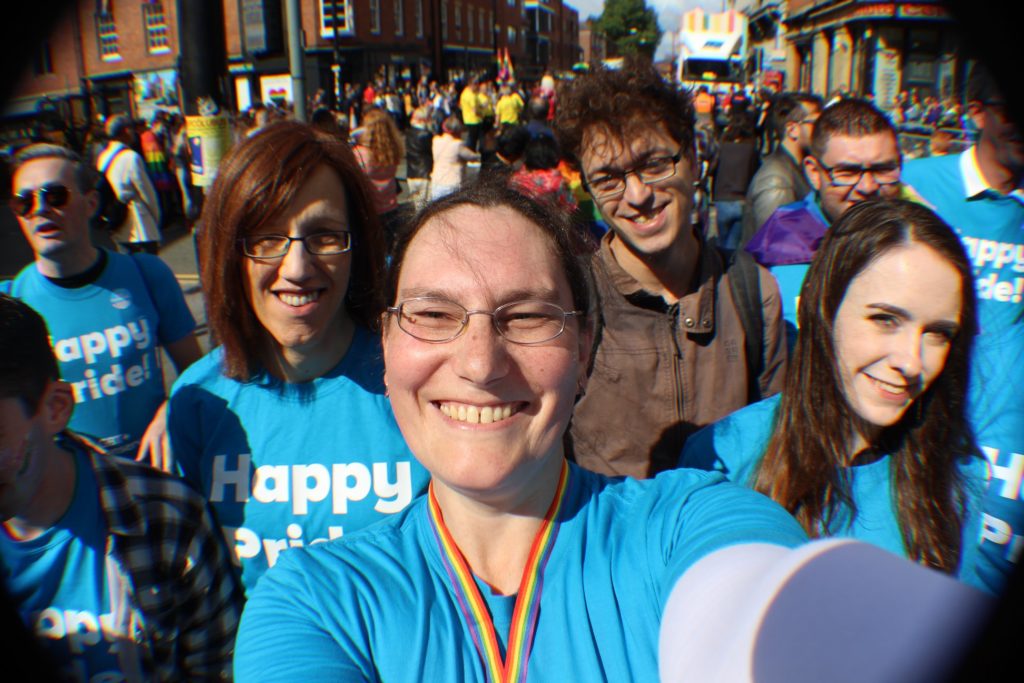It seems IDAHOBIT (or IDAHO or whatever it’s being called this year) comes around earlier and earlier each year, doesn’t it? I wish it came alongside improvements to LGBT+ lives but, sadly, it’s not always the case. There is still widespread prejudice and discrimination; so the fight for equality has to continue.
In the UK, I’m happy to see many politicians backing the push for greater equality and the breaking-down of the institutional barriers that have seen LGBT+ peoples’ lives fraught with problems for far too long. Trans people still receive hate and discrimination every day; be it harassment and attacks in the street (something I’ve had to deal with personally not too long ago), or workplace discrimination (again, speaking from personal experience), or death threats (wow, it’s a hat trick!), or simply finding barriers are placed in their way by the Government, for no actual good reason.
So while we celebrate the gains that LGBT+ people have achieved in the last year, let’s see what we still need to tackle.
Gender Recognition Act Reform
The UK Government is still working on reform of the Gender Recognition Act 2004. This Act, which many of us were very happy to finally have back when it was given Royal Assent, is outdated and was never written with the needs of trans people in mind. The Act was a response to a court battle, which the UK Government of the time lost. As a result, the Act does what is necessary to not get sued again on the same grounds; rather than dealing with some very pressing needs of the trans community.
Reform is needed. The pathologisation of trans people, which the Act requires, needs to go – as does the excessive cost of receiving a Gender Recognition Certificate. While I wasn’t one of the lucky ones who could apply during the initial fee waiver period, I did get in pretty early and as a result, my GRC didn’t cost an arm and a leg. When you remember that a very large percentage of the trans community is either out of work or not earning a vast amount, it’s easy to see how Gender Recognition is still out of reach to a lot of our community. That needs to change.
The requirement for so much medical documentation also needs to change. While I can see an argument for perhaps not making it as simple as saying “I declare myself trans” being the bar for entry, so to speak, I do not accept (and most people who’ve looked into this will also accept) that medical intervention, statements from doctors, etc shouldn’t be necessary to get a GRC. There needs to be some common ground here, some way of reducing the administrative and personal cost of getting this thing.
Let’s make this less of a paper trail and more streamlined. Make it possible for the poorest members of our community to afford it, too.
The Spousal Veto
There is absolutely no excuse in a free and democratic society for one person to have the ability to deny another person their rights without recourse to a court of appeal – yet that’s what the trans community has to deal with.
The Spousal Veto is a paragraph in the Marriage (Same Sex Couples) Act 2013, Schedule 5. This paragraph allows the spouse of a married trans person to unilaterally refuse that trans person a Gender Recognition Certificate.

I wrote back in 2015 that the Spousal Veto is an affront to trans peoples’ rights and has no basis in reality for existing. It has so little to back it up that it doesn’t even exist any more in Scotland, it’s purely an England & Wales problem. In that link (to a report I wrote for LGBT+ Conservatives), I provided several case studies (from real cases, reported to the transgender non-profit organisation T-Vox) that demonstrated how harmful the spousal veto could be.
The argument for preventing a married trans person receiving a Gender Recognition Certificate is that “we can’t re-write history” in order to change a heterosexual marriage into a same-sex marriage but this argument has no foundation. We can re-write history – that’s what a Gender Recognition Certificate does. Moreover, if there’s no difference between a same-sex marriage and a mixed-sex marriage, why is there any “history” to change?
The Spousal Veto is an abuser’s charter; it’s only purpose is to cause harm to married trans people. It needs removing immediately.
The Gay Blood Ban
A few years ago, men who had sex with men in the UK were banned from donating blood for life. These days, there’s a three-month ban rather than a lifetime ban but even that is excessive and the reasons behind it don’t all stand up to scrutiny. It’s time we looked again at this issue, especially in light of the increased effectiveness of preventative medication that can stop a lot of infections.
Infection is the only real reason anyone would have to support a block on blood donations for gay men – it’s the only reason that’s ever put forward. The thing is, the diseases that proponents of the ban always bring up aren’t limited to gay men. So let’s either have another look at whether this three-month ban (i.e. you can’t give blood for three months after having gay sex) is actually necessary, or let’s have a proper discussion on why gay men are being targeted here but the average guy in a nightclub who goes home with a different woman each weekend is still allowed to give blood.
I think we all know the answer, don’t we?
Okay, those are the three issues that need to be addressed right now. I’m sure you have more; and if you do, I’d love to see your lists. Let me know in the comments.
